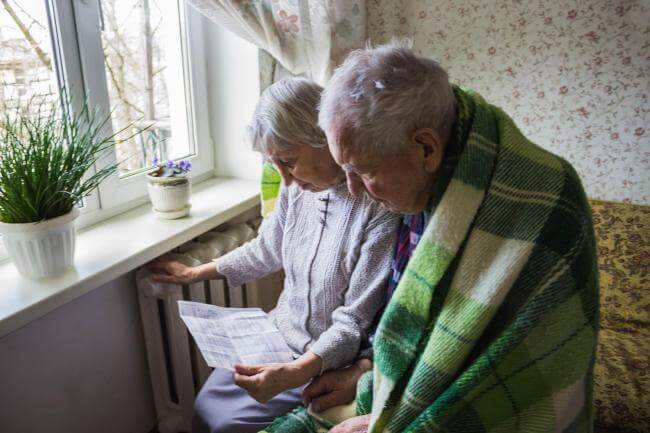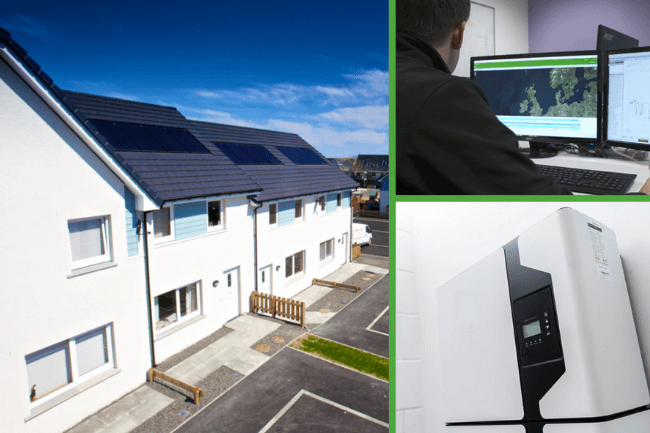Energy price hike leaves millions at risk from fuel poverty. What can social housing landlords do?

With wholesale electricity prices at an all-time high and Ofgem’s energy price cap due to be raised just as the colder weather sets in, social housing landlords and their tenants face a perfect storm of fuel poverty conditions this winter. We look at how innovative finance and clean technology solutions can help.
Fuel poverty: a perfect storm this winter?
With the balmy days of summer now behind us and autumn almost here – bringing much cooler temperatures – for many of the most fortunate amongst us, the biggest worry on the immediate horizon is when to swap over to our winter wardrobes. For millions of others, however, this time of year can present a much more serious, looming dilemma: how to keep homes and families warm amid the prospect of crippling winter energy bills.
Due to the costs of heating and powering a home throughout winter when most of our time is spent indoors, fuel poverty is a stark and – worryingly – increasing reality for over 10% of households in the UK (approximately 5 million).
This coming winter looks particularly bleak. Owing to a perfect storm of rising energy prices, forecasts for more extreme weather amidst climate change, and (not least) government policy, the problem could be exacerbated further still in coming months, causing many more families across the British Isles to be pushed into fuel poverty. As many as 500,000 more households, according to campaigners.
The role of social housing landlords
Whilst fuel poverty presents a serious financial hardship and public health concern for millions of UK citizens, it is also becoming an increasing headache for the social housing landlords who provide accommodation. It is these social housing providers who are at the forefront of the country’s Fuel Poverty Strategy through mandated targets to make their properties more affordable, liveable, and environmentally-friendly for tenants.
Before we look at one particular solution – Solopower – that aims to help social housing achieve this aim, it’s important to understand how we’ve found ourselves on the cusp of this modern fuel poverty crisis. Whilst the underlying causes are complex and were discussed in our recent podcast, a number of recent developments have accentuated the issue.
Ofgem cap raised as wholesale market spikes
Last month (August 2021), energy market regulator Ofgem lifted its limit on energy tariffs by up to £153, meaning millions of homes will be forced to pay some of the highest energy bills seen in the past decade after the cap was raised for some of the most vulnerable households in the country. The price rise is scheduled for October 2021, when cold weather is due to set in, and happens in the same month ministers have said that the special £20 a week uplift to universal credit will be withdrawn. It will also follow the scaling down of the furlough scheme at the end of September, which has shielded millions of workers from unemployment during the pandemic.
Shortly following Ofgem’s announcement, the UK’s wholesale electricity market also soared to a record high, deepening the growing concerns about fuel poverty. The electricity market price passed the £100 a megawatt-hour mark in August for the first time since the market was formed in 1990. The average market price reached £107.50/MWh, up 14% on July, and well above the previous record of £96/MWh recorded in the run-up to the 2008 global financial crisis. This electricity market surge would suggest yet another increase to home energy bills if these prices are sustained.
As a result of Ofgem’s price cap decision, 11m households with direct debit bills will be asked to pay an average of £1,138 for a dual-fuel energy bill, an increase of £139. For another 4m households that use prepayment meters, the average bill will climb from £1,156 to £1,309. The sharp increase is expected to push about half a million households into fuel poverty this winter, according to campaigners, and has reignited calls for a social energy tariff priced below the cap.

Solopower: green energy tech at zero upfront cost
Whilst ideas like a social energy tariff are a welcome solution, for as long as Britain continues to be dependent on fossil fuels for the majority of its energy supply, the country will continue to be exposed to wholesale market price swings, leaving many consumers still vulnerable to higher household energy bills, and our planet at risk from dangerous climate change. That is why alongside cheaper energy tariffs, there are now even more urgent calls for business models that make low-carbon, green energy technologies accessible and affordable to those who need them most in society.
Enter Solopower, launched earlier this year by SMS. Solopower is a green technology solution that offers local authorities and housing associactions fully financed, intelligently operated solar generation and smart battery storage. Significantly, Solopower is a service that makes these renewable technologies available at zero upfront cost to the landlord and their tenants, and in doing so, aims to address the dual challenge of carbon emissions and fuel poverty together.
With proven savings from Solopower trial projects having successfully demonstrated how the solution can decarbonise housing electricity by up to 90% per home and lower electricity bills by up to 25% (achieving approximately £200 in savings per year, whilst affording tenants the freedom of choice for their remaining grid electricity supply), innovative new energy services like these could offer UK housing organisations a gamechanger in supporting their long-term sustainability fuel poverty targets.
Case study: Aberdeen City Council partners with SMS
Since the launch, we have already contracted to operate battery storage systems across 700 houses with a number of local authorities in Scotland. We are also leveraging these partnerships to drive yet more innovation that is seeing other green technologies added to our energy-saving concept.
Supported by the Government’s Social Housing Decarbonisation Fund Demonstrator, SMS in May announced a new project in partnership with Aberdeen City Council to deliver a programme of fabric upgrades and renewable energy technologies across 100 council homes. Building on what is already offered to social landlords through Solopower, SMS is working with Aberdeen City Council and other delivery partners to add heat pumps and thermal-imaging technology to the design and delivery of the home energy system – once again all at no upfront cost to the residents.
Commenting on the project, SMS’s Head of New Energy Systems, Sean Keating, said: “The UK today faces the enormous challenge of developing intelligent, scalable models that can decarbonise the housing stock in ways that are both commercially viable and affordable for residents. SMS’s financing ability and innovative technology-led solution looks to develop a business model that encourages collaborative public and private sector investment on this front.”

Download the Solopower brochure
Play a part in shaping the future of low-cost, decarbonised electricity supply for the UK social housing sector. Contact us at solopower@sms-plc.com today to arrange an initial consultation, or visit the Solopower webpage.
Listen to our podcast on fuel poverty in the social housing sector
We talk to renewable energy expert, Killian O’Connor, about how fuel poverty is defined, some of the Government policies aimed at alleviating the problem, and how — importantly — technology-led and finance-backed solutions might just hold the answer



